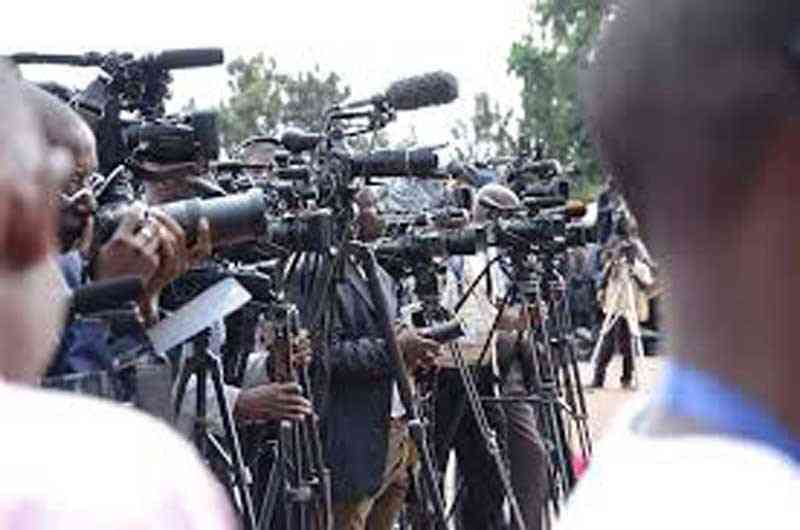
This submission reflects on some contextual issues that have an impact on how the Zimbabwean media has covered the August 23 2023 harmonised elections.
Results of a quantitative and qualitative analysis of media content by media research organisation, Media Monitors, indicate signs of improvement yet critical challenges remain evident.
Baseline and performance indicators
Arguably the supreme law of the land, particularly Sections 61 and 62 that guarantee freedom of expression and media as well as access to information are critical to inform any role of the media.
Providing equal access, diversity and exhibiting levels of editorial independence and integrity are cornerstones of any role of the media in strengthening the electoral process.
Zimbabwe's electoral legislation provides for the role of the media and in particular a statutory instrument developed to set standards and an accountability framework provide key standards that the media can be tested on.
The Code of Conduct administered by the Voluntary Media Council of Zimbabwe (VMCZ), internal regulatory frameworks are the primary source of holding media accountable and where such are not public, the reflections on the performance of media become secondary.
In other words, it is most ideal to test media organisations based on the standards they set for themselves.
- The story behind Zim media’s coverage of China
- Proposed media laws a travesty
- Letters: Journalists safety imperative as new laws come into action
- Feature: Zim’s quest for media self-regulation
Keep Reading
Adhering to their own editorial policies is their currency and basis at which they will gain public trust.
Stakeholders commitment
Beyond the legal and professional governing frameworks for the media in Zimbabwe there are notable commitments that stakeholders have committed themselves to based on a series of interventions that organisations under the auspices of the Media Alliance of Zimbabwe (MAZ) undertook in contributing towards strengthening the media's role during elections.
Professional associations including the Media Institute of Southern Africa (Misa Zimbabwe), the Zimbabwe Union of Journalists (ZUJ) and the Zimbabwe National Editors Forum (Zinef) mobilised their membership across the country in engaging with the police command and political parties in building consensus on the need to ensure a safe working environment and preserving the integrity of the media and journalism during the electoral period.
Similar advocacy interventions were carried out with the government and the media commission.
This engagement process yielded commitment by all key electoral stakeholders culminating into a signed pledge towards the same.
The notable improvements in particular the flighting of opposition political advertisments are reflective of that stakeholders' commitment.
However, despite efforts to popularize the usage of existing accountability mechanisms, more so raising complaints with the media monitoring committee, established in terms of SI 33 there is no publicly recorded case of any media complaint successfully resolved.
This, I submit, was a missed opportunity to test these accountability mechanisms that could inform future interventions aimed at strengthening the media's role during elections.
For example, the national broadcaster was not taken to task over the non-adherence to the publicized programming schedule on elections.
Beyond testing the monitoring mechanism, the Media Monitors report findings demonstrate the need for rethinking media regulation during elections.
The report noted that the electoral management body's activities had a significant stake in the coverage of the election.
In that case the election management body becomes referee and player, who on one hand is one main source of news and on the other the regulator.
Slow implementation of observer mission reports
The media policy environment remains deeply state entrenched.
While there are notable efforts to liberalise the sector and enhance access to information, key policy propositions obtained in previous observer missions reports have not been implemented.
The dual accreditation system of journalists, which also resulted in some media practitioners inhibited from participating in the election, impacts on the quality of news.
The non-implementation of the reforms to the broadcasting regulatory framework and provisions that criminalise falsehoods has resulted in the newly licensed community radios having a restricted role in the electoral period and entrenched a culture of fear.
The recently enacted patriotic provisions have restricted free expression and inhibits free journalistic enterprise by perpetuating self-censorship.
There hasn't been any attempt to transform state media to public service and as such there is a continued bias towards the incumbent administration.
Few women candidates
The presidential election has one female candidate, which translates to less than a tenth of available airtime for women even if the media were to strictly adhere to the legal framework governing elections.
I make reference firstly to the presidential election as it carries more weight in news value.
It thus follows that other women candidates are less likely to get coverage in an environment where the one seeking the highest office in the land is already struggling to get the 10% threshold.
Information disorder on social media
Zimbabwe's political environment is highly polarised. The polarisation is evidenced in the counter narratives existing on social media.
There are contrasting groups with monikers of varakashi, supporting the presidential candidate and the nerrorists in favour of the Nelson Chamisa led opposition.
In the quest of dominating the narrative, the truth becomes the casualty.
There are commendable fact-checking interventions and media literacy campaigns to push back false narrative.
Yet the solution is in ensuring that the mainstream media and electoral management body collaborate and timeously release information to ensure truthful content carries the day.
*Nigel Nyamutumbu is a media development practitioner serving as the head of secretariat of the Media Alliance of Zimbabwe, a network of media professional associations and support organisations. He can be contacted on [email protected] or , +263 772 501 557.







